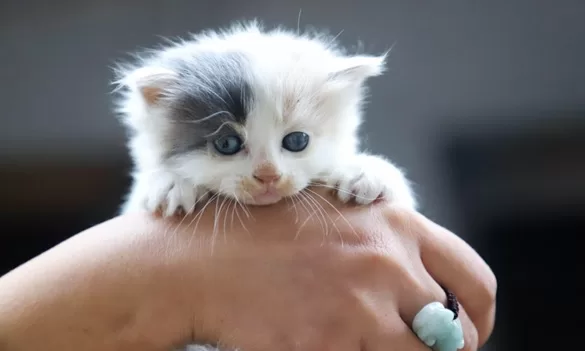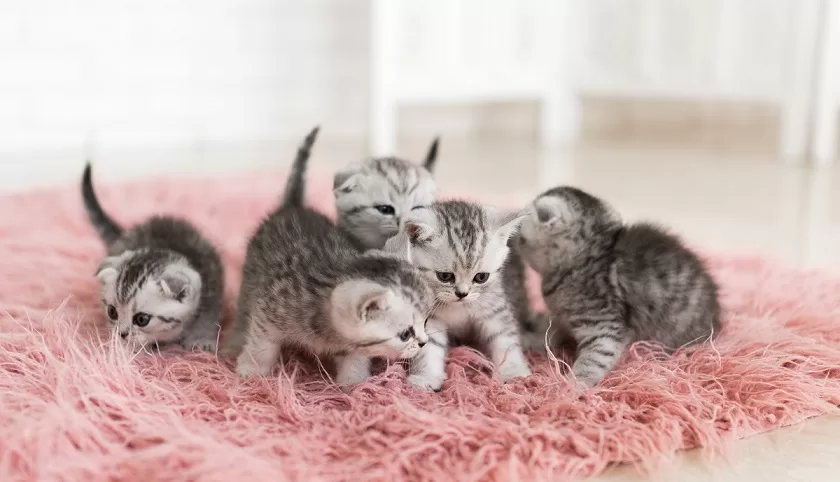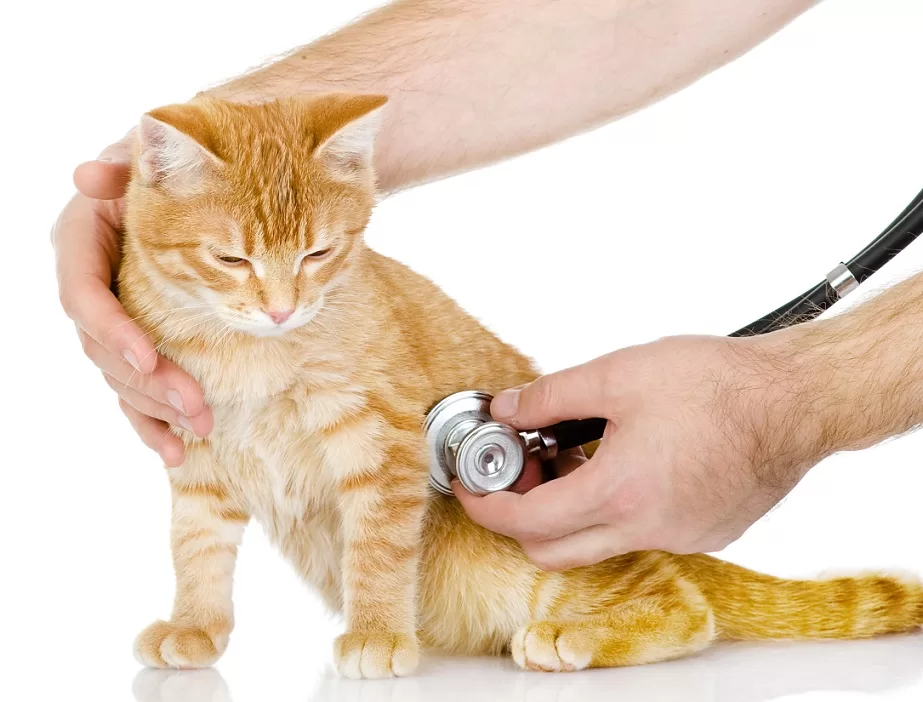When you become a fur parent, there will be a lot of excitement and anxiety. Don’t worry; the excitement always overpowers the anxiousness. There are many things to look forward to when you become a fur parent, especially if you’re caring for a small kitten.
Still, even though caring for kittens is not as hard as caring for a baby, becoming a fur parent also entails a few reminders. First-time kitten owners certainly have a few questions that they want to know the answer to. Here are the answers to seven frequently asked questions when someone becomes a fur parent of kittens.
What Food Kittens Can Eat Aside From Milk?
When the kitten is still a newborn, feeding milk through a bottle is the way to go. They’ll need all the nutrients in the milk to grow fast. They won’t be able to chew solid foods when they’re younger than 3.5 to 4 weeks.
If they’re already over four weeks old, you can start slowing down on bottled milk feeding. You can now start feeding the kitten with a spoon or introducing the kitten bowl to them. You can start adding kitten food to the formula when they’re already eating from the bowl. Choose kitten food that contains premium ingredients and balanced nutrition, optimizing the health and vitality of your kittens.

How Often Should They Eat
Feeding a kitten whenever you can isn’t ideal. It would be beneficial to you and the kittens if you would create a feeding schedule. This will maximize your time and prevent overfeeding since kittens of different age groups should not have the same feeding schedule.
Newly born kittens around one week should be fed every 2 to 3 hours. It ensures that there will be enough nutrients in their system. When kittens reach two weeks or become three weeks old, they should be fed around every 3 to 4 hours and 4 to 6 hours, respectively.
What Essential Supplies Does A Kitten Need?
Becoming a fur parent entails preparing the essential gear needed for the entertainment and hygiene of the kittens. These are the top 5 must-haves every fur parent should get since kittens are self-entertaining and don’t need to have supervision always:
- Litter Box – It is an essential thing that you need to provide your kittens. You can pick any style or size as long as it fits your wants and your kittens’ needs.
- Bowls – Get the two-in-one food and water bowls. It would be better because it is easier for your kittens to determine where to eat and drink.
- Brushes and Combs – Using cat brushes is important, especially if your kitten is long-haired. Brushing them removes dead and loose hair. This will help your kitten look fluffy.
- Scratching Post – Get a scratching post to prevent your kittens from scratching your furniture and appliances. Kittens must keep their claws in ideal condition, and adding a scratching post solves that problem.
- Toys – Even though kittens are self-entertaining, they could still use toys for additional entertainment. Just remember to avoid toys that have small parts so as to avoid them from swallowing or choking on these parts.

When To Go To A Veterinarian?
Starting your kitten’s preventive care is essential. It helps ensure that you give your kitten a long and healthy life. This starts when you get a veterinarian for your kitten. The veterinarian can help ensure that your kitten’s lifestyle is right for the kitten’s age and breed.
Schedule your very first veterinarian visit within the kitten’s first week. It will help in building rapport between your kitten and the veterinarian. It will also help you make more informed decisions, which would be essential for the kitten’s health and wellness.
Should I Vaccinate My Kitten?
Kittens, especially those born recently, are very susceptible to infectious diseases. As a fur parent, keeping them safe and protecting them is always a priority. Having them vaccinated is a critical step in ensuring their safety and protection.
When your kittens are 6 to 8 weeks old, they can get the core vaccinations. Core vaccinations are those vaccines that protect kittens from common diseases such as Feline Viral Rhinotracheitis, Feline Calicivirus, and Feline Panleukopenia (FVRCP), as well as rabies.
Kittens that are high-risk are recommended to get non-core vaccinations. Veterinarians are the ones that would determine if your kitten is high-risk or not based on their lifestyle. Non-core vaccines include feline leukemia virus (FeLV) and Bordetella vaccines.
What are the Don’ts In Taking Care of Kittens?

Aside from the things fur parents should do, some things should be avoided. During this time, they’re very susceptible to environmental influences. Having negative influence could drastically change their behavior and growth pattern. Here are the things that fur parents should not do:
- Don’t yell, threaten or physically punish kittens
- Don’t blame the kitten for sharpening its claws at the furniture
- Don’t let your kitten outside unsupervised
- Don’t isolate your kitten
- Don’t let children interact with kittens unsupervised
- Don’t feed kittens human food
Final Thoughts
When you become a fur parent, it gives you a sense of fulfillment. It excites you, and you have many things to look forward to. However, being a fur parent also entails responsibilities that you need to follow through. These responsibilities include buying essential gear and the right food and protecting them. With the FAQs mentioned above, you’re on your way to growing a wonderful and loyal pet.

